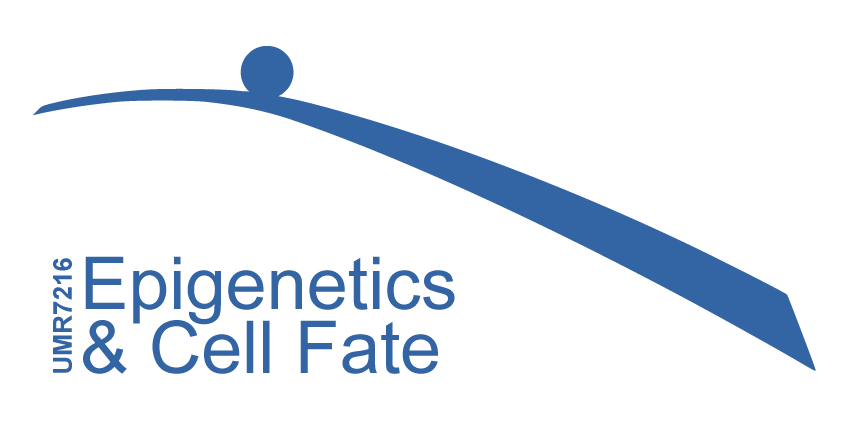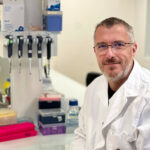Olivier Kirsh is Maître de Conférence (Lecturer / Assistant Professor) at Université Paris Cité (Paris – Diderot, Paris 7).
He’s teaching biostatistics, molecular biology, functional genomics, and bio-informatics from L1 to M2. He’s regulary invited in panels (Magistere de Génétique, Master BI, Ecole Doctorale Compléxité du Vivant, Ecole Doctorale HOB, comité de Thèse, Comité de sélection de Maître de Conférence…). He’s also teaching for « formation continue » at the Cancéropole, l’école de bioinformatique AVIESAN de Roscoff and for the DU « Bioinformatique intégrative ». He co-animates the “Paris 7 Bioinfo Club” on the Paris Rive Gauche Campus.
In September 2013, Olivier joined Pierre-Antoine Defossez’s team to deploy bio-informatics and bio-analyses approaches (Nanostring, ChIP-seq, RNA-seq, microarray, Whole Genome and Reduced Representation of Bisulfite Sequencing (WGBS & RRBS analyses)) to study the interplay between kinases signaling pathways, chromatin remodelers, and DNA methylation for the control of gene expression in the cancer cells and during mouse embryonic stem cells differentiation.
Since 2020, he’s been a member of our Bioinformatic platform. He develops pipelines and scripts used to explore and analyze experiments implementing high-throughput sequencing technologies. His daily tools are R, Bash, or Docker /Singularity to run computational analyses on our cluster (ipop-UP) or on ifb servers.
Former activities:
He did his Ph.D. at the Institut Pasteur in Dr. Anne Dejean’s lab (Unité d’Organisation Nucléaire et Oncogenèse) working on SUMO, a new Ubiquitin-like post-translational modification and senescence. He did a postdoctoral training at the Institut de Recherches Cliniques de Montréal (IRCM) in the laboratory of molecular genetics of Dr. Jacques Drouin where he worked on the molecular mechanisms of nuclear receptors’ transcriptional repression. Then he moved to the Institut de Génétique Moléculaire de Montpellier (IGMM) in Dr. Claude Sardet’s lab where he developed bio-informatics and high-throughput sequencing technologies approaches to characterize the E4F1 transcription factor target genes. His contribution enlightens unexpected functions linking cell cycle, genome integrity, and metabolism for this transcription factor in cancer and post-mitotic cells. He also worked with Dr. Eric Julien on the H4K20me1 epigenetic mark involved in replication origins licensing.

